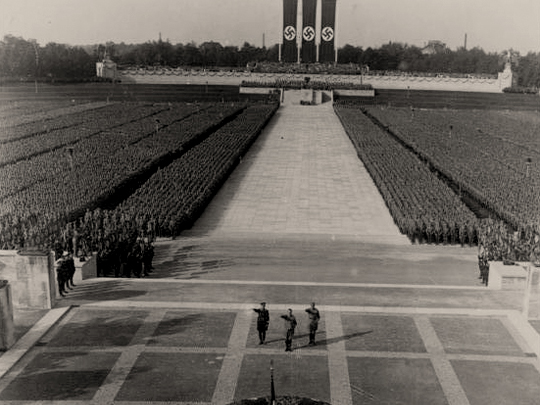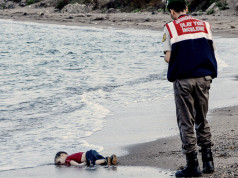Wikimedia Commons / CC-BY-SA-3.0 / GFDL
1 – Nazis Enact Nuremberg Laws
The Nuremberg Laws were antisemitic laws in Nazi Germany. They were introduced on 15 September 1935 by the Reichstag at a special meeting convened at the annual Nuremberg Rally of the Nazi Party (NSDAP).
The two laws were the Law for the Protection of German Blood and German Honour, which forbade marriages and extramarital intercourse between Jews and Germans and the employment of German females under 45 in Jewish households.
The second was the Reich Citizenship Law, which declared that only those of German or related blood were eligible to be Reich citizens.
The remainder were classed as state subjects, without citizenship rights.
A supplementary decree outlining the definition of who was Jewish was passed on 14 November, and the Reich Citizenship Law officially came into force on that date.
The laws were expanded on 26 November to include Romani people and Afro-Germans.
Out of foreign policy concerns, prosecutions under the two laws did not commence until after the 1936 Summer Olympics, held in Berlin.
Jewish citizens were harassed and subjected to violent attacks. They were actively suppressed, stripped of their citizenship and civil rights, and eventually completely removed from German society.
2 – Shah of Persia Declares Persia now Iran

In the Western world, Persia was historically the common name for Iran.
On 21 March 1935, Reza Shah asked foreign delegates to use the term Iran, the historical name of the country, used by its native people, in formal correspondence.
Since then, in the Western World, the use of the word Iran has become more common.
This also changed the usage of the terms for Iranian nationality, and the common adjective for citizens of Iran changed from Persian to Iranian.
3 – Mussolini Invades Ethiopia

The Second Italo-Ethiopian War was a colonial war that started on 3 October 1935 and ended in May 1936.
The war was fought between the armed forces of the Kingdom of Italy and the armed forces of the Ethiopian Empire, known at the time as Abyssinia.
The war resulted in the military occupation of Ethiopia.
Politically, events like the Mukden Incident in 1931, and the Abyssinia Crisis in 1935 are often seen as a clear demonstration of the ineffectiveness of the League of Nations.
Italy and Ethiopia were member nations and yet the League was unable to control Italy or to protect Ethiopia when Italy clearly violated Article X of the Covenant of the League of Nations.
The Italian victory in the war coincided with the zenith of the international popularity of dictator Benito Mussolini’s Fascist regime, in a phase called “the age of consensus” during which colonialist leaders praised Mussolini for his actions.
Mussolini’s international popularity decreased as he endorsed the Anschluss between Nazi Germany and Austria, beginning a political tilt toward Germany that destroyed Mussolini and the Fascist regime in Italy in World War II.









